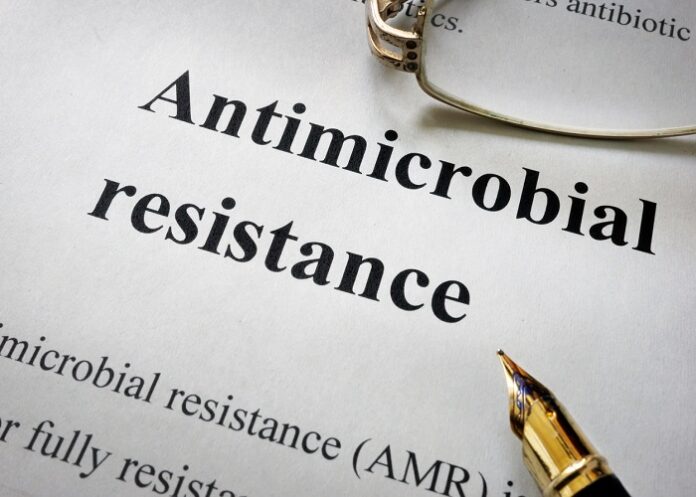Concerned experts say that if antimicrobial resistance continues to grow, in 25 years’, some antibiotics will become useless, certain bacterial infections will be much harder to treat, and AMR deaths will outnumber those caused by cancer.
AMR is already globally recognised as one of the greatest health threats of the 21st century, responsible for 1.27m deaths annually.
“The WHO predicts that if no measures are taken promptly, AMR could lead to more deaths than cancer by 2050,” said Arnaud Marchant, MD, PhD, director of the European Plotkin Institute for Vaccinology at Université libre de Bruxelles (EPIV-ULB), Belgium, in an interview with MediQuality, part of the Medscape Professional Network.
“This is a huge problem – and vaccination could be part of the solution.”
EPIV-ULB marked the start of the World AMR Awareness Week recently with an event highlighting the critical role of vaccination to counter the rise of resistant pathogens, and with a number of keynote speakers and experts among attending delegates.
Antibiotics losing effectiveness
Marc Van Ranst, PhD, virologist at Rega Institute KU Leuven in Belgium, echoed Marchant’s concerns.
“An increasing number of bacteria are becoming resistant to more antibiotics. While these were once miracle drugs, they have now stopped – or almost stopped – working against certain bacteria. Although we are discovering more effective therapies, bacterial infections are increasingly likely to worsen due to AMR.”
He issued a stark warning: “If this trend continues, it is entirely reasonable to predict that in 25 years, some antibiotics will become useless… it should be noted that as oncological treatments improve, cancer-related deaths are expected to decline, further highlighting the growing burden of AMR-related fatalities.”
Viruses, vaccines and resistance
Van Ranst said that while AMR primarily involves bacteria, viral infections, and vaccination against them, also play a role.
“When vaccines prevent illness, they reduce the need for unnecessary antibiotics. In the past, antibiotics were frequently prescribed for respiratory infections – typically caused by viruses – leading to misuse and heightened resistance. By preventing viral infections through vaccines, we reduce inappropriate antibiotic prescriptions and, subsequently, AMR.”
Strategic areas of focus
To maximise the impact of vaccination in combating AMR, several strategic areas needed emphasis, according to EPIV-ULB.
“Expanding vaccination coverage for recommended vaccines is crucial to help prevent the spread of resistant pathogens,” said Marchant.
“Innovation and development of new vaccines is also essential, including targeted research into those for infections that are unavoidable, through other means. Enhancing epidemiological surveillance through national data collection and analysis will further clarify the impact of vaccines on AMR and inform policy decisions.”
EPIV-ULB underscored the importance of educating the public and healthcare professionals.
“Public awareness is essential to tackling vaccine hesitancy by providing clear information on the importance of prevention,” Marchant said.
“Healthcare training must also improve, encouraging preventive practices and judicious antibiotic use. Furthermore, additional research is necessary to fill data gaps and develop predictive models that can guide vaccine development in the future.”
Role of vaccination
The experts were unanimous in their agreement that complementary solutions were critical as antimicrobials lose efficacy and treatments become more complex.
“Vaccination offers a proactive and effective preventive solution, directly and indirectly reducing the spread of resistant pathogens,” said Marchant.
“They prevent diseases like pneumococcal pneumonia and meningitis, reducing the need for antibiotics to treat these infections, and also reduce inappropriate antibiotic use by preventing viral infections, as well as the risk of overprescribing in unnecessary cases. And, of course, herd immunity from vaccination slows the circulation of resistant pathogens, limiting their spread.”
A global challenge
Marie-Lise Verschelden from Pfizer highlighted the need for co-operation across healthcare sectors.
“Collaboration, including government involvement, is critical to advancing efforts. At Pfizer, we continue to develop new vaccines and technologies, and the Covid crisis has reinforced the critical role of vaccination in combating AMR. Through our vaccine portfolio and ongoing developments, we are well-positioned to contribute significantly to this global challenge.”
Elisabeth Van Damme from GSK reiterated that AMR is a global issue requiring joint efforts.
“Existing vaccines are underutilised. Vaccination protects against certain infectious diseases, reducing the need for antibiotics. Antibiotics, in turn, are sometimes prescribed incorrectly, especially for viral infections they cannot treat. At GSK, we are already developing new vaccines to meet future needs.”
Medscape article – AMR Could Surpass Cancer as Leading Cause of Death by 2050 (Open access)
See more from MedicalBrief archives:
Alarming finds from AMR study of hospital surfaces in six countries
World leaders pledge to slash AMR by 10%

